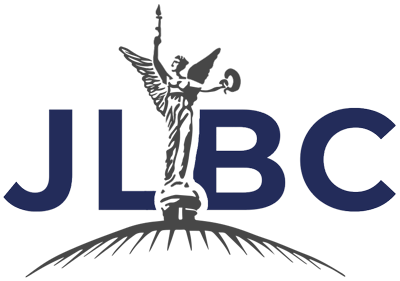BUDGET REFORM
CHAPTER 210
Laws 1997, Chapter 210 continues the changes begun in 1993 to streamline the state’s budgeting procedures. The entire budgeting – program evaluation process will be converted to a 2-year cycle, starting with FY 2000. The major emphasis of the first regular session of a Legislature will be budgetary review and approval. Program evaluation and Program Authorization Reviews (PARs) will be conducted in the second regular session. (See attached calendar) Budgeting and strategic planning would also be further integrated by converting the budget to a more programmatic format.
Prior to the passage of Chapter 210, the current budget and program authorization process has been modified by the following legislation: Laws 1993, Chapter 252; Laws 1995, Chapter 283; and Laws 1996, Chapter 339. The 1993 budget reform legislation had 4 main components:
- established a split budgeting cycle in permanent law — smaller agencies were reviewed every 2 years and the larger budget units still underwent annual budget reviews.
- as session law, required agencies to develop strategic plans, which included a mission statement, goals, objectives and performance measures for the budget unit as a whole.
- as session law, required the Governor’s Office of Strategic Planning and Budgeting to develop a master list of state agency programs.
- created a 4-year pilot program on PARs in session law. Under these reviews, agencies completed self-assessments of designated programs. Unlike sunset audits, they focused on particular programs within an agency. Upon completion of the self-assessment, OSPB and the staff of the Joint Legislative Budget Committee (JLBC) developed their own findings on the efficiency and effectiveness of the program’s operation and recommended whether to retain, eliminate or modify the programs. A total of 75 PARs were required over the 4 years. Chapters 283 and 339 established the list of specific programs to be reviewed.
Chapter 210 Provisions
Budget Cycle
- Converts the entire budget to a biennial process. The Legislature will adopt 2-year budgets, with each year separately delineated, for every budget unit. The budget will be adopted in the first year of each 2 year biennium of the Legislature. This change will begin in 1999 for the Fiscal Year 1999-2000 and Fiscal Year 2000-2001 budgets. (A.R.S. §§ 35-101, 35-121).
- Makes conforming changes to existing provisions concerning the submission of agency budget requests (A.R.S. §§ 35-112, 35-113) and the Governor’s budget recommendations (A.R.S. §§ 35-111, 35-115, 41-723). In even-numbered years, the Governor may still propose revisions to the enacted budgets, but agencies would not be required to submit detailed budget requests.
- Makes conforming changes in a) retirement system statutes so as require employer contribution rates to be reported every 2 years. (A.R.S. §§ 38-737, 38-803, 38-848, 38-883); b) agency capital budget submissions so as to permit 2-year budgeting (A.R.S. §§ 41-793, 41-793.01); c) the State Compensation Fund budget (A.R.S. § 28-981) and d) OSPB and JLBC Appropriation Limit reporting requirements (A.R.S. §§ 35-114, 41-1273).
Strategic Planning and Master List of Programs
- Converts the existing strategic planning and master list procedures to permanent law and a 2-year cycle that meshes with biennial budgeting. Agencies will submit their strategic plans to OSPB and JLBC on April 1 of even-numbered years. At the same time, agencies will also submit their list of programs for inclusion in OSPB’s master list of all state agency programs. These 2 submissions will precede an agency submitting its budget request on September 1 of even-numbered years. By aligning the submission dates in this fashion, agencies will be able to develop their strategic plan and their program list prior to submitting their budget. (A.R.S. § 35-122).
Program Budgeting
- Requires agencies to submit their budget requests using their program list structure. This change will allow the format of the General Appropriation Act to be converted from line items of expenditure such as Personal Services and Travel to a list of programs representing the most important activities of the agency. (A.R.S. § 35-113). By July 1, 1998, the JLBC Staff and OSPB shall issue a schedule specifying the year in which each budget unit shall begin submitting a program budget. All budget units are to be converted to program budgeting by FY 2006.
Program Authorization Reviews
- Converts the existing PAR process to permanent law (A.R.S. § 41-1275). PARs will be conducted in even-numbered years (the second year of the 2-year legislative term), so as to avoid legislator and staff time conflicts with the budget.
- Agencies will be given an opportunity to formally submit their own candidates for PARs by October 1 of each odd-numbered year. In consultation with OSPB, the Staff of the JLBC shall meet with the JLBC by December 31 of each odd-numbered year to develop legislation for introduction in even-numbered years to subject specific programs to the PAR process.
- The budget unit responsible for a program that is subject to a PAR shall prepare a self-assessment by April 1 of the odd-numbered year following enactment of the legislation described above. JLBC Staff and OSPB shall evaluate the self-assessment and jointly produce a report of their findings no later than October 15 of each odd-numbered year.
- The Speaker of the House of Representatives and the President of the Senate shall appoint sufficient Joint PAR Committees to evaluate the JLBC/OSPB findings. In addition to legislative members, each committee shall include 3 private citizens. Each committee shall hold at least 1 public hearing for the purpose of recommending whether to retain, eliminate or modify funding and related statutory references for the programs subject to review. Prior to the public hearing, the JLBC Staff and OSPB may independently make their own recommendations on the programs. The Joint Committees shall make their recommendations to the Speaker and President by December 15 of each odd-numbered year. Each committee shall oversee preparation of any proposed legislation and is responsible for its introduction.


